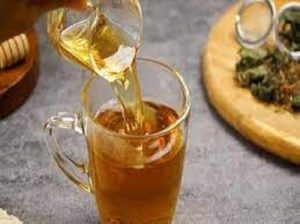 What is Alcoholic Tea?
What is Alcoholic Tea?
A beverage known as “alcoholic tea” is one that contains both tea and alcohol in equal parts. You can make it by either boiling tea with alcoholic components like wine, spirits, or liqueurs or by adding alcohol to hot or cold tea. You can also make it by adding alcohol to hot or cold tea. Alcoholic tea is a popular beverage that comes in a wide variety of varieties, each of which features a distinctive aroma and flavour profile as well as a unique amount of alcohol.
Spiked sweet tea, which can be created by adding alcohol such as vodka, rum or whisky to sweetened iced tea, is a well-liked kind of alcoholic beverage known as tea. Another common modification is to add a shot of rum or whisky to chai tea. This is also quite popular. A splash of liqueur, such as amaretto for almond tea or Kahlua for coffee tea, is a delicious addition that some people love adding to their cup of hot tea.
It is essential to recognise that drinking alcohol in moderation can have positive health effects, however drinking excessive amounts of alcohol can have the opposite effect on one’s health. In addition, it is strongly advised that those who are pregnant, as well as those who are suffering from a variety of medical ailments, do not consume any alcohol at all.
Trends in the Market for Alcoholic Tea
The market trend of selling alcoholic tea has been gaining popularity over the past few years. This one-of-a-kind drink creates a one-of-a-kind drinking experience by combining the invigorating flavour of tea with the soothing effects of alcohol. The availability of a wide variety of flavours, ranging from traditional black tea to fruity herbal blends, is a major selling point for the product. This pattern has also inspired innovation within the sector, which has resulted in the emergence of new brands and goods to satisfy the increasing demand. A growing number of individuals are looking for alternatives to typical alcoholic beverages that are both healthier and more natural, and alcoholic tea is well-positioned to become a standard in the market as a result.
Over the past few years, there has been a discernible upward trend in the market for alcoholic tea. Consumers are increasingly gravitating towards the option of drinking alcoholic tea in response to the growing desire for novel and original alcoholic beverages.
The rising number of people who are curious about the history of tea and the medicinal properties of tea has been identified as one of the primary forces behind the trend. Tea can serve as a base for alcoholic beverages that gives the impression of being more natural and wholesome, which is something that consumers looking for alternatives to standard alcoholic beverages that are healthier and more natural are looking for.
The rising popularity of craft beers and other types of specialised alcoholic beverages is another element that is fueling the trend. In recent years, there has been a significant increase in the number of small breweries and distilleries that are producing tea-infused alcoholic beverages. These institutions are continually doing experiments with tea-infused beers, ciders, and spirits in order to develop concoctions that are original and ground-breaking. In addition, there has been a rise in the production of artisanal tea blends that are made for the sole purpose of being used into other kinds of mixed drinks, such as cocktails. This movement has opened up a whole new world of intriguing and savoury beverage possibilities, which is great news for people who enjoy drinking tea as well as those who drink alcohol.
The rise in popularity of alcoholic tea can be attributed, in large part, to the rising desire for beverages that have a lower percentage of alcohol in their composition. Consumers who are looking for drinks that can be consumed in sessions more easily and have a lower overall alcohol content are driving the growing popularity of alcoholic tea. This one-of-a-kind beverage is the ideal choice for individuals who are looking for a beverage that is not only flavorful and refreshing but also lacks the high level of alcohol that is typically found in conventional alcoholic beverages. It gives customers the opportunity to drink a beverage that is not only tasty and refreshing but also has a lower alcohol content than typical cocktails or spirits.
As long as people want new and interesting alcoholic beverages, the market for alcoholic tea will continue to expand at a healthy clip in the years to come. This will be the primary factor driving industry expansion.
The alcoholic tea market profiles key players such as:
- Red Diamond
- Wagamama
- Tea Venture
- Harry Brompton’s London Ice Tea
- Eteaket
- Synergy Flavors.
The global alcoholic tea market is segmented as follows:
By Base
- Irish Cream
- Gin
- Vodka
- Bourbon
- Rum
By Flavor
- Berries
- Lime
- Mint
- Cucumber
- Mango
- Peach
By Flavor
- Retail
- Commercial
- Industrial
Regional Analysis of Market Report:
- North America ( United States)
- Europe ( Germany, France, UK)
- Asia-Pacific ( China, Japan, India)
- Latin America ( Brazil)
- The Middle East & Africa
To summarise, the consumption of alcoholic tea has become increasingly popular in the beverage business. The combination of alcohol and tea creates a flavor profile that is unique and enjoyable, making it an appealing option for people in search of a fresh and stimulating experience. Because there is such a wide variety of conceivable flavour profiles and combinations, alcoholic tea may accommodate a wide variety of preferences in terms of flavour. The increasing trend towards alcoholic beverages that are better for you and made with organic ingredients has been a big factor in the rise in popularity of alcoholic tea. This is due to the fact that people have the impression that alcoholic tea is a healthier and more natural alternative to traditional alcoholic beverages. As a whole, it is anticipated that the trend of drinking alcoholic tea will continue to expand in the next years, particularly because an increasing number of consumers are interested in trying out novel and cutting-edge beverages.





Be First to Comment